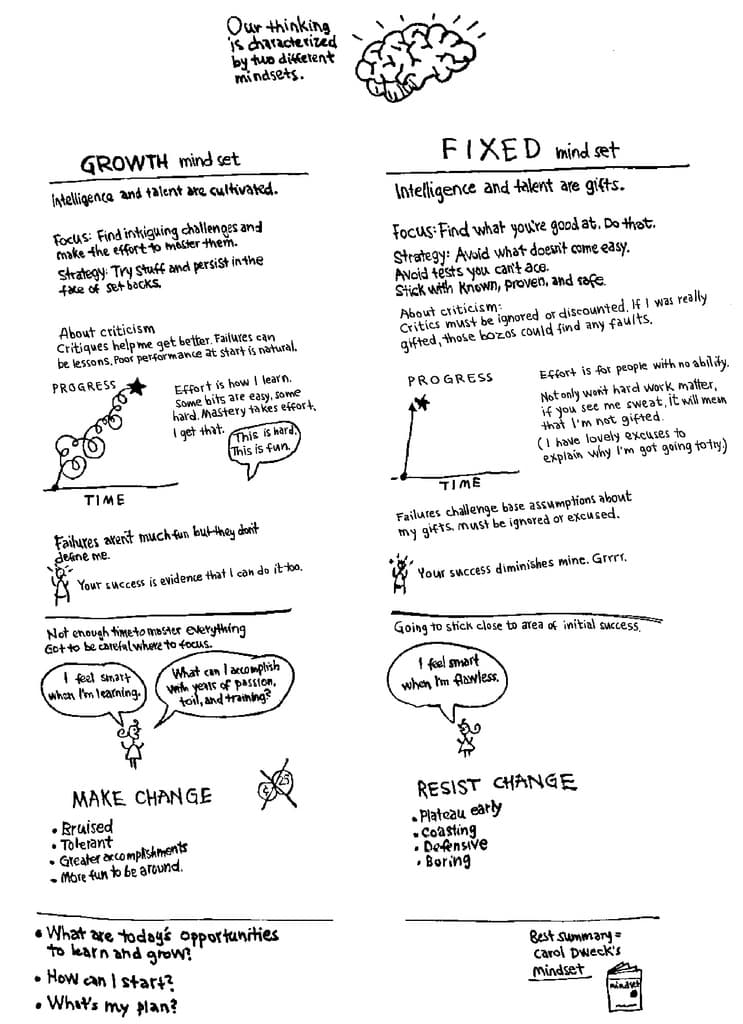In my quest to understand what leads certain people to excel, and others to fail, I came across the theory of a “growth mindset”, introduced by Carol S. Dweck: In her book Mindset, she argues that personality and skills are not a fixed trait but rather something we can develop. She distinguishes between a “growth mindset” and a “fixed mindset” and explains the differences between these two groups:
People with a fixed mindset have a propensity to allow their fears and feelings of shame to give them the impression that they’re always being judged and labeled, so they must continuously defend themselves to enjoy appreciation and validation. They also tend to judge and label others, as all their validation depends on outside factors. Their rigid consciousness promotes unfinished thinking, which makes change very hard.
In contrast, people with a growth mindset are willing to take risks and exert effort to learn and change. They pick up accurate information about their current abilities and are able to develop the awareness to identify their own strengths and weaknesses. As a result of their more agile mind, they can convert setbacks into future successes. By believing in their “internal locus of control,” they continuously develop as human beings.
Dweck explains how children are all born with a drive to learn but, once they reach an age at which they can evaluate themselves, some become scared and teach themselves to be helpless and fail, as they fear big challenges. She uses many examples to demonstrate the difference between children with a fixed mindset and those with a growth mindset. For instance, she asked four-year-old kids to solve jigsaw puzzles and, after a while, offered them harder puzzles. The kids with a fixed mindset would want to play it safe and continue using the same puzzles, while those with the growth mindset immediately took on the new challenge.
In another piece of research, kids with both mindsets were given some easy riddles. Both groups solved them very well. Then they were given unsolvable riddles. Those with the fixed mindsets gave up much quicker than those with a growth mindset, who didn’t seem to want to give up. In a final test, all the kids were given easy challenges again. The interesting finding was that, again, the kids with the growth mindset solved the quizzes very easily, while those with a fixed mindset struggled. Some even refused to try them, fearing that they could embarrass themselves, as they felt they had done with the more difficult puzzles. In fact, they had taught themselves learned helplessness.
I challenge you to think about how a “growth mindset” could help you excel in certain areas of your life, and what kind of effort it would take to make a quantum leap into a better life. For me, this happened when I realized that I was able to improve the quality of my dating life, by increasing my awareness of what was going on inside my mind. In no time, I enjoyed unprecedented results.
Resources:
Mindsets by Don Moyer
Puzzle Toy Deana
